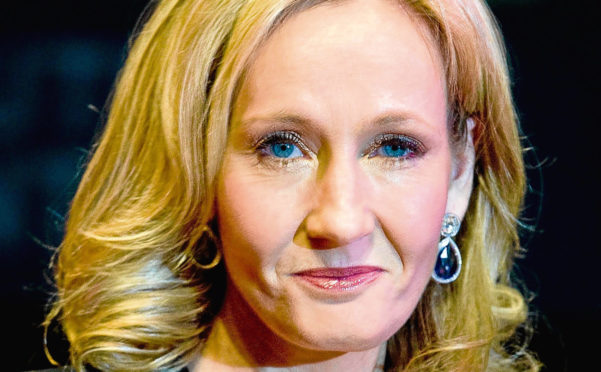
JK Rowling might not be Scottish but seems to have picked it up all right.
We have not, to be honest, been invited to Potter Towers as often as we would like but, from afar, Ms Rowling seems to have many of the traits which, Scots like to imagine, are shared by the best of us.
She is a philanthropist who gives her time and many millions to good causes, not to mention the millions more in taxes paid on the dot without a desert island dodge or avoidance scheme in sight.
More relevantly, given the events of recent days, when she has an opinion, she is unafraid to voice it. She seems thrawn and fearless in standing up to be counted on issues she believes are important, whether that is preserving a united kingdom or how the campaign for transgender rights might be undermining women’s rights.
You do not have to share those beliefs, although many do, to believe that Scotland should be pleased such a strong, talented woman can feel at home here.
Of course, her opinions enflame social media but that is less about Ms Rowling than about her celebrity and the world we live in, particularly the digital world where, on the wrong day on the wrong timeline, just about any opinion can ignite a firestorm.
Of course, Ms Rowling speaks from a position of privilege but there are many in privileged positions who stay silent, unwilling to endure the ensuing onslaught.
No doubt there are professors of Twitterology researching how social media has coloured our political debate but a blind man on a galloping horse can see the damage done when the needle is always in the red, when every disagreement is an argument, every argument a row, and every row a declaration of war.
There is, clearly, a generation gap and what seems divisive, unnecessary and exhausting to those over 40 is often just everyday discourse to their children.
And, of course, social media can be a huge force for good. Online, in a few short weeks, the Black Lives Matter protests, for example, have educated and activated hundreds of thousands of young people about issues of race and racism, equality and justice.
The level of faux outrage, moral high-grounding, invective and vitriol has to be corrosive, however, slowly chewing through civility and respect; the little things that mean so much when people with different, often opposite, views have to rub along.
Last week, as statues up and down Britain stood on wobbly plinths, as Winston Churchill was put in a box on Parliament Square, commentator Daniel Finkelstein pointed out many of those remembered in monuments there were, in life, opposed to each other. “Politics is like that,” he wrote. “There’s no one right answer.”
On social media, no statues face off, no opposing views can stand side by side, no dissenting opinion, it seems, is allowed to colour the purity of another, differing view.
People are free to disagree with JK Rowling’s opinion but she did not, and does not, deserve this hounding online. No one does.

Enjoy the convenience of having The Sunday Post delivered as a digital ePaper straight to your smartphone, tablet or computer.
Subscribe for only £5.49 a month and enjoy all the benefits of the printed paper as a digital replica.
Subscribe